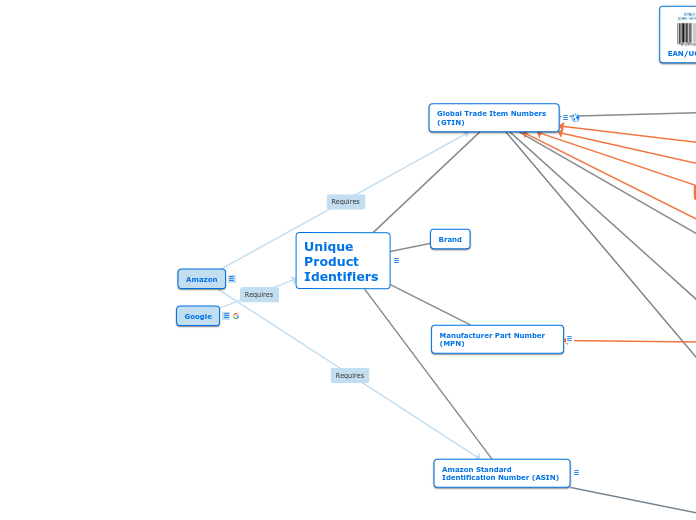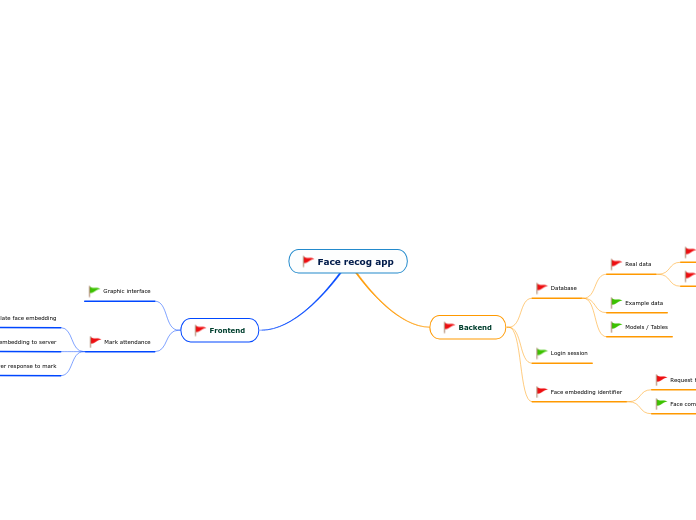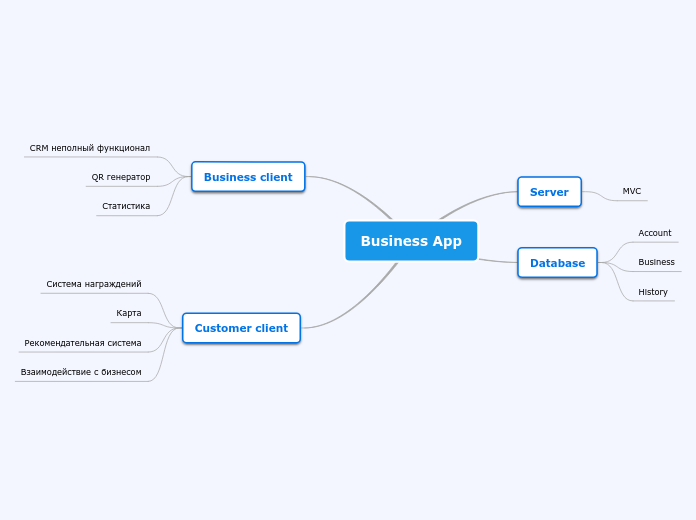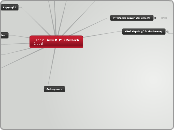A PlantingSpace project
https://planting.space/mangrove.html
EU: VAT number
OpenCorporates
API plans:
Basic
No Share-Alike restrictions
20,000 API calls / month
2,000 API calls / day
£829/year or pay £99/monthly
Corporate
No Share-Alike restrictions
50,000 API calls / month
10,000 API calls / day
£3,109/year or pay £329/monthly
Company name
Zefix
For search: https://www.zefix.ch/en/search/entity/welcome
Switzerland: EHRA ID, CH-ID, UID
Data Universal Number System (DUNS) number
Source: Wikipedia
The Data Universal Numbering System, abbreviated as DUNS or D-U-N-S, is a proprietary system developed and regulated by Dun & Bradstreet (D&B) that assigns a unique numeric identifier, referred to as a "DUNS number" to a single business entity.
Source: EESPA.eu
DUNS is the Data Universal Numbering System or D-U-N-S® Number, Dun and Bradstreet’s (D&B) copyrighted, proprietary means of identifying business entities on a location-specific basis. Assigned and maintained solely by D&B, this unique nine-digit identification number has been assigned to over 100 million businesses worldwide.
EAN/UCC-14 or ITF-14
GS1 System
Source: GS1
The GS1 Global Data Synchronisation Network® (GDSN®) is a network of interoperable data pools enabling collaborating users to securely synchronise master data based on GS1 standards. GDSN supports accurate, real-time data sharing and trade item updates among subscribed trading partners.
GSDN
GEPIR
Jährliche Lizenzgebühr in CHF
GS1 Schweiz Mitglied
(inkl. GS1 Systemnutzung)
Umsatzstaffel in Mio. CHF 0 bis 599: 2'000.- exkl. MwSt.
Umsatzstaffel in Mio. CHF Ab 600 : 3'000.- exkl. MwSt.
GS1 Schweiz Basismitglied und
nicht Mitglieder
0 bis 599 1'000.- exkl. MwSt.
Ab 600 In der GS1 Systemnutzugsgebühr
enthalten
https://client.gepir.ch/docs/default-source/default-document-library/teilnahmebedingungen_gepirpremium.pdf?sfvrsn=36f2b0_2
EAN/UCC-13
EAN/UCC-8
EIN Finder
Melissa
Source: Melissa website
Use the Nonprofit Organization lookup to find information pertaining to nonprofits. View information like names, addresses, assets, income and IRS subsections for over 1.5 million U.S. nonprofits.
SEC EDGAR
US: Employer Identification Number (EIN) / (TIN)
The employer identification number (EIN) is a business tax ID or federal tax identification number (TIN). It is a unique nine-digit number that identifies a business with the IRS. An EIN is required for purposes such as to file taxes, open a business bank account, obtain a business license, or apply for a business loan.
Regional or industry-specific company IDs
GS1 Global Location Numbers
Source: GS1
GLN Service
The GLN Service provides for the verification of accurate address information for any business location within the supply chain. It is a global service utilizing a central registry, providing a single point of access to GS1 GLN master data via an interconnected network of local registries. This ensures that a delivery will arrive at the right place, reducing delays and eliminating fines.
GLN Service Standards
The GLN Service standards provide business functionality for data registration and query & response XML messaging.
GLEIF LEI Look-up API
Source: GLEIF
The GLEIF LEI Look-up API can easily be integrated into internal systems based on the widely supported JSON data format. Use of the API is free of charge and does not require registration.
The GLEIF LEI Look-up API makes it possible to easily find up to 200 LEI records included in the Global LEI Index with one request. Consequently, data users are able to speedily retrieve information on specific LEIs with the API instead of having to download the
GLEIF Concatenated Files or to manually search for individual records with the LEI search tool
For search on website: https://search.gleif.org/#/search/
Global Legal Entity Identifier (LEI)
Source: GLEIF
The Legal Entity Identifier (LEI) is a 20-character, alpha-numeric code based on the ISO 17442 standard. It connects to key reference information that enables clear and unique identification of legal entities participating in financial transactions. Each LEI contains information about an entity’s ownership structure and thus answers the questions of 'who is who’ and ‘who owns whom’. Simply put, the publicly available LEI data pool can be regarded as a global directory, which greatly enhances transparency in the global marketplace.
In 2011, the Group of Twenty (G20) called on the Financial Stability Board (FSB) to provide recommendations for a global Legal Entity Identifier (LEI) and a
supporting governance structure. This led to the development of the Global LEI System which, through the issuance of LEIs, now provides unique identification of legal entities participating in financial transactions across the globe.
The reference data includes:
- Business card information, e.g. the official name of a legal entity and its registered address. In the Global LEI System, this information is referred to as ‘Level 1’ data. It provides the answer to the question of ‘who is who’.
- Relationship information, which allows the identification of the direct and ultimate parents of a legal entity, if applicable. This information is referred to as ‘Level 2’ data. It answers the question of ‘who owns whom’.
Company identifiers
Paper on the importance of consistent company identifiers:
https://www.gleif.org/content/3-lei-solutions/2-mckinsey-company-and-gleif-creating-business-value-with-the-lei/legal-entity-identifier_mckinsey_gleif_2017_final.pdf
ISBNdb
From the website:
ISBNdb is one of the most comprehensive book databases on the web. Using data from hundreds of libraries, publishers, merchants and other sources around the globe, ISBNdb compiles dozens of data points for millions of books including books in print, out of print and rare books in multiple languages. Search by ISBN, title, author, subject or publisher.
The ISBNdb database is one of the largest book databases available, featuring over 21 million unique ISBNs with up to 19 data points per book and searchable via our custom API. Choose one of the plans below to access the API:
BASIC: $9.95 USD / month
- 5,000 daily calls
- Free 7 day Trial
- Full API access
- Cancel anytime
PRO account: $49.95 USD / month
- 50,000 daily calls
- Full API access
- Real Time Prices
- Unlimited Tech support
- Cancel anytime
Or custom solutions
No API, only search in app
Paid or restricted-use API
Free API
Key
ID search services
System of Identifiers
Large retailers using UPI
Open GTIN DB
The Open EAN/GTIN barcode number database lets users query barcode numbers online and receive information about related products. The database contains EAN/GTIN/UPC/JAN codes and provides detailed information about the products that are tagged with such a barcode number. The API lets users query the database from their own web sites and applications. It uses HTTP calls and responses are formatted in TXT.
Amazon Barcode Product Label
Unlike traditional retailers which require UPC/EAN or ISBN barcodes be placed on each item for scanning on Point of Sale registers, Amazon has different Product labeling requirements based on the type of shipment.
For non-commingled inventory, each item must be labeled with an FBA Amazon Barcode Product Label. Labeled inventory designates each product belongs to you, and is used by Amazon to receive and manage inventory shipped to Amazon Fulfillment Centers. The FBA Amazon Barcode Product Label ensures items received, sold and shipped to customers are attributed to the appropriate seller.
Source:
https://www.barcode.graphics/education-amazon-barcode-labels/
Barcodelookup.com
API
Starter: 5,000 API calls, $99 month
Pro: 100,000 API calls, $499/month
Where do we get our barcode information?
We work directly with over 1,500 retailers who provide us with massive amounts of data and the latest barcodes in their inventory systems. We've got just about everything in our database — from common grocery items and electronics, to obscure lesser known products. We use our proprietary technology to sort through the data, sift out the most useful information and present it to you in a searchable, easy-to-use format.
Currently, our database is in the tens of millions — and we're constantly working to acquire more. And as soon as the data for a new barcode comes into our possession, we immediately import it into our searchable database to make sure you can find it. At Barcode Lookup, we analyze, check and re-check the information in our database to ensure that it's accurate and up- to-date.
CodeCheck
Amazon Standard Identification Number (ASIN)
Source:
https://www.barcode.graphics/amazon-product-id/
Amazon Standard Identification Numbers (ASINs) are unique blocks of 10 letters and/or numbers that identify items. You can find the ASIN on the item’s product information page at Amazon.com. For books, the ASIN is the same as the ISBN number, but for all other products a new ASIN is created when the item is uploaded to Amazon’s catalogue. You will find an item’s ASIN on the product detail page alongside further details relating to the item, which may include information such as size, number of pages (if it’s a book) or number of discs (if it’s a CD).
ASIN barcodes can be used to search for items in Amazon’s catalogue. If you know the ASIN or ISBN of the item you are looking for, simply type it into the search box (which can be found near the top of most pages), hit the “Go” button and, if the item is listed in the catalogue, it will appear in your search results.
For example, the ASIN barcode for Hasbro’s “Monopoly” game is B00005N5PF.
Amazon
In order to set-up items in Amazon’s brand registry, users are required to enter a UPC number (general merchandise) and an ISBN number (for books) as part of the item set-up procedure. NOTE: There are a some exemptions to the UPC/ISBN requirement
GS1 Company Prefix (relevant for companies with a supply chain)
Google
Requires all three: GTIN, Brand and MPN
Japanese Article Number (JAN)
From Google:
- Used only in Japan
- Japanese Article Number (JAN), also called GTIN-13
- 8 or 13 numeric digits
- A unique numerical identifier for commercial products that's usually associated with a barcode printed on retail merchandise.
Brand
Manufacturer Part Number (MPN)
- Used globally
- Alphanumeric digits (various lengths)
- The number which uniquely identifies the product to its manufacturer
Int. Standard Book Number (ISBN)
Books often use the International Standard Book Number (ISBN) barcode format, which is compatible with EAN barcodes.
- Used globally
- ISBN-10: 10 numeric digits (last digit may be "X" which represents the number "10").
- Note that this format was deprecated in 2007, and not all books can be represented using ISBN-10.
- ISBN-13 (recommended): 13 numeric digits and typically starts with either 978 or 979
- A unique numerical identifier for commercial books published since 1970 that can be found on the back of the book along with the barcode.
Source: Google
Image source:
https://www.barcode.graphics/amazon-product-id/
International Article Number (EAN)
Merchants in Europe and other areas around the world often use a barcode type known as an International Article Number (EAN, since it was formerly known as European Article Number).
- Used primarily outside of North America
- European Article Number (EAN), also called GTIN-13
- Typically 13 numeric digits (can occasionally be either eight or 14 numeric digits)
Image source: https://www.gtin.info/
Universal Product Code (UPC)
The United States, Canada, the United Kingdom, Australia, New Zealand and many other countries generally use barcodes known as Universal Product Codes (UPCs).
- Used in primarily North America
- Universal Product Code (UPC), also called GTIN-12 and UPC-A
- 12 numeric digits
Image source:
https://www.barcode.graphics/amazon-product-id/
Global Trade Item Numbers (GTIN)
Several different types of ID numbers are considered a GTIN.
- UPC (in North America / GTIN-12): 12-digit number (convert 8-digit UPC-E codes to 12-digit codes)
- EAN (in Europe / GTIN-13): 13-digit number
- JAN (in Japan / GTIN-13): 8 or 13-digit number
- ISBN (for books): 13-digit number (convert ISBN-10 to ISBN-13). If you have both, include only the 13-digit number.
- ITF-14 (for multipacks / GTIN-14): 14-digit number
Unique Product Identifiers
Source: Google
Unique product identifiers define the product you're selling in the global marketplace. They uniquely distinguish products you are selling and help match search queries with your offers. Unique product identifiers are assigned to each product by the manufacturer, so if you sell the same product as another retailer, the UPIs will be identical.
Common unique product identifiers include Global Trade Item Numbers (GTINs), Manufacturer Part Numbers (MPNs), and brand names. Not all products have unique product identifiers. However, if your product does have one, especially a GTIN, providing it can help make your ads richer and easier for users to find.









